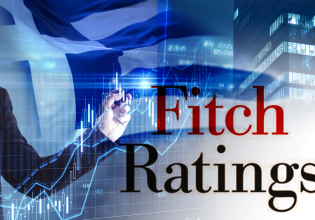Inflation: Greek consumers cut back on basic items due to inflation
They prefer products that are on sale or private label
There is no break in the market this year, with consumers looking to cut spending where they can, as month-on-month increases in staples continue unabated.
Unfortunately, inflation remains the most serious problem faced by Greeks in the last two years, despite the government’s efforts to limit the phenomenon with supportive measures, such as the market pass, energy subsidies for household incomes, but also interventions in the market, such as the household basket, imposing a ceiling on the profit margin on key product categories.
Market agents do not hide their fears that from September and given the continuous increase in the prices of food and raw materials in the international markets, there will be new price increases in basic products.
The price of sugar has already increased in the last two years by 64%, of olive oil by 51%, while in flour, cereals and baked goods the increases exceeded 30% from 2021 to today.
This situation has forced consumers not only to limit their purchases for months, but also to turn to cheaper products, whether they are on sale or private label.
At the same time, spontaneous purchases at the supermarket have been significantly reduced, while in their consumer behavior Greeks have now adopted the purchase of smaller packages, are cutting back on non-essential foods, while they have also cut back on their journeys to reduce fuel costs.
According to the latest Nielsen IQ data, which now includes actual data from the discount channel, the organized food retail market moved positively in value by 8.7% in the first half of 2023 compared to the corresponding period last year .
This trend is mainly driven by food, both fresh (+9.2%) and standardized (+9.4%), with bazaar products showing the most moderate growth, at +2.7%, while at the same time the major FMCG categories of household use, as well as personal care, show significant sales growth in value, at +10.6% and +7.8% respectively, due to increased prices.
However, looking at volume sales for the total up to June 18, 2023, there is a 2.5% decline, suggesting that market growth is purely inflationary, with consumption holding back.
Private label products
In fact, from the same data it follows that consumers, in their effort to limit their spending per visit to the supermarket, continue to show a growing preference for private label products.
These, although they have significantly increased their average selling price, continue to be the cheapest alternative in the majority of categories, having now reached a market share of 1/4 of the total.
This share, in fact, is particularly high in household care products, with more than a third of the products that enter the basket of Greek households being private label, showing a percentage increase compared to 2022.
At the same time, retailers and suppliers are stepping up their efforts to be as competitive as possible, offering shoppers more and more deals. The percentage of promotional intensity in the market has reached, for the first half of the year, 69.3% for branded products.
- Ισπανία: Διαδήλωση εκπαιδευτικών και γονέων στη Βαλένθια για τα κλειστά σχολεία
- Η Coca-Cola εξοπλίζει τον στόλο οχημάτων της με EV
- Economist: Πόσο κινεζική είναι η Shein
- Βρετανία: Με απολύσεις και αυξήσεις τιμών αντιδρούν οι λιανέμποροι στον προϋπολογισμό Στάρμερ
- Πανδαισία: Highlights από τα κορυφαία ευρωπαϊκά πρωταθλήματα – Όλα τα γκολ (vids)
- Θέλτα – Μπαρτσελόνα 2-2: Γκέλα στο «Μπαλαΐδος» για τους Μπλαουγκράνα







